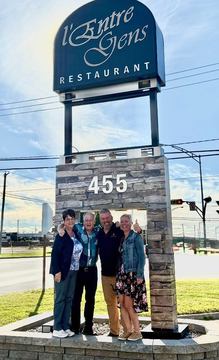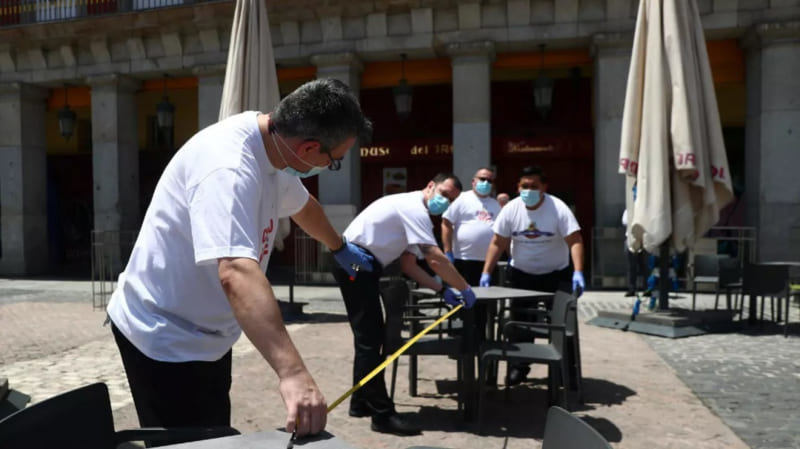
Since the start of the pandemic, we have spoken at length about the harmful effects of COVID-19 on the restaurant industry in Canada and more particularly in Quebec. But what about elsewhere in the world? Let us give you a brief overview of the constraints facing restaurant owners around the world in the face of this pandemic, which has just entered a second wave.
Some measures applied here, such as the space required between tables, wearing a mask or even disinfecting gel, are common in many countries.
We know that the government of Quebec had forced the closing of the dining rooms as of last March, leaving open only the delivery services and orders to take out. In June, following a large list of restrictions, dining rooms again welcomed customers. And now, at the very beginning of October, restaurants located in the red zone, the maximum alert level, had to close their dining rooms again.
In France, representatives of the sector will present a reinforced sanitary protocol to be able to remain open despite the health situation which is regaining force in certain areas. We are talking about starting to take the temperature of customers on their arrival, encouraging them to pay at the table and not at the counter, or even keeping a notebook of customer contact information to facilitate tracing after a positive case detected in the establishment.
Germany was one of the first countries to require customers to leave contact details at restaurants, bars and cafes. And from now on, fines of 50 euros will be given for those leaving false contact details.
In Belgium, visitors cannot frequent restaurants with just anyone. They must do so in the company of members of their household and a maximum of five additional people making up their social bubble.
In the UK, establishments close early, at 10 p.m., and only table service is permitted. Customers do not have to leave their contact details upon arrival, but it is strongly recommended that you download the NHS COVID-19 tracing app to be accepted at a restaurant without a problem.
In Spain, more precisely in Madrid, while the inhabitants cannot leave the city, the closing of bars and restaurants is brought forward to 11 p.m., tables are limited to six people and reception capacities are limited to 50% for room service.
Early restaurant closures are also in effect in Northern Ireland at 11 p.m. and 10 p.m. in the Netherlands. In Ireland restaurants and pubs serving food must restrict their outside service or offer take-out.







